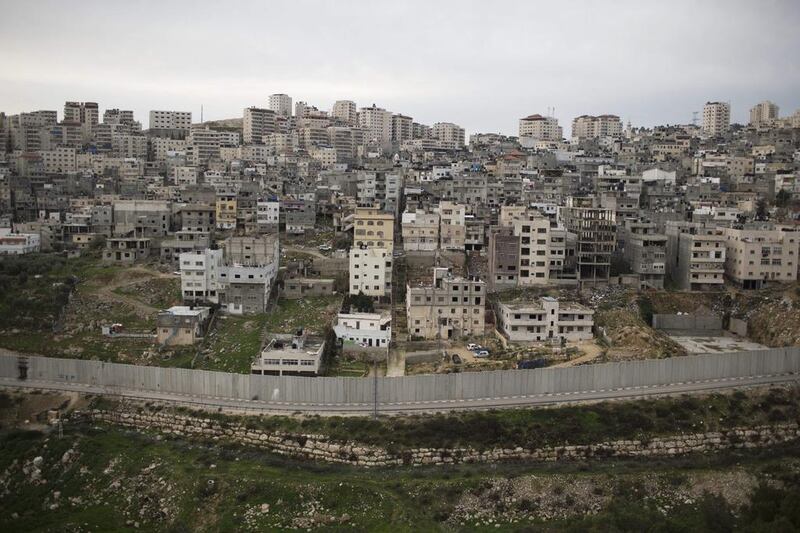UNITED NATIONS // The Palestinians presented a draft UN resolution on Wednesday, laying out terms for a final peace deal with Israel but sought to avoid a clash with the United States by saying they were open to negotiations on the text.
The draft resolution would set a 12-month deadline for wrapping up negotiations on a final settlement and the end of 2017 as the time frame for completing an Israeli withdrawal from Palestinian territories.
It was presented to the UN Security Council by Jordan, said the Palestinian UN ambassador, Riyad Mansour, who thanked Arabs and European countries for their help.
Mr Mansour indicated he would not press for a quick vote on the text to allow for more discussion — a move seen as opening the door to possible US engagement at the United Nations on the initiative.
“We will continue negotiating with all of them and with the Americans if they are ready and willing so that we perhaps can succeed in having something adopted by the Security Council to open a serious door to peace,” the envoy said.
The Palestinians had earlier said they wanted a quick vote but since backed away, apparently under pressure from Arab countries including Jordan, which is seeking a draft that will be acceptable to the United States.
Washington has repeatedly vetoed Security Council resolutions seen as undermining its close ally Israel.
The draft resolution calls for a “just, lasting and comprehensive peace solution that brings an end to the Israeli occupation” and “fulfils the vision” of a Palestinian state with Jerusalem as the shared capital.
The final settlement should be reached no later than 12 months after the adoption of the resolution, the text said.
The measure also provides for a phased Israeli withdrawal from Palestinian territories according to a time frame “not to exceed the end of 2017” — a provision that will likely run into opposition from the United States.
The US administration opposes moves to bind negotiators’ hands through a UN resolution, particularly any attempt to set a deadline for the withdrawal of Israeli troops from the West Bank.
US secretary of state John Kerry said the Palestinian resolution would not present a problem if it can avoid exacerbating tensions in the region.
“We don’t have any problem with them filing some resolution, providing it’s done in the spirit of working with people to see how we could proceed forward in a thoughtful way that solves the problem, doesn’t make it worse,” Mr Kerry said.
The United States had refused to say whether it would veto the Palestinian draft, arguing that it had yet to examine the text.
The Palestinians began circulating a draft at the end of September, after president Mahmoud Abbas told the UN General Assembly that it was time to fast-track Palestinian statehood.
The text as it stood with a firm deadline of November 2016 as the end of Israeli occupation had no chance of approval.
But the threat of the draft seems to have been enough to jolt the international community into action.
France stepped into the fray last month and, with Britain and Germany, began discussing options for a separate resolution.
Keen to head off a diplomatic crisis, Mr Kerry held a flurry of meetings this week with Israeli prime minister Benjamin Netanyahu, Palestinian negotiators and European ministers.
The United States was concerned that a UN resolution could play into the hands of Israeli hardliners as the country heads toward elections in March and suggested it could be delayed.
A US veto risks angering key Arab allies, including partners in the US-led coalition carrying out air strikes against ISIL in Syria and Iraq.
The latest round of Israeli-Palestinian peace talks, shepherded by Mr Kerry, collapsed in April amid mutual recriminations.
This summer’s 50-day war in Gaza followed, and tensions have boiled over in the West Bank and east Jerusalem with a series of deadly attacks on Israelis and frequent clashes between security forces and stone-throwing Palestinians.
Frustration with the stalled peace process has also grown in Europe, where lawmakers in Britain, France and Spain have all called in recent weeks for the recognition of a Palestinian state.
* Agence France-Presse





